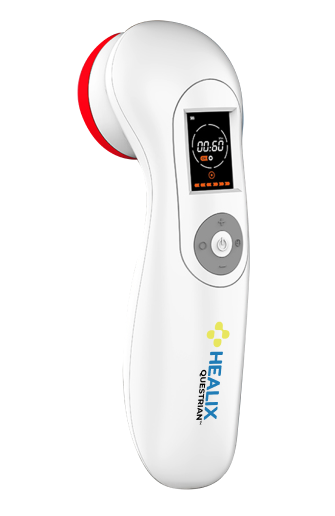Understanding ADHD Therapy: What Works and Why
One of the most prevalent neurodevelopmental disorders, attention-deficit/hyperactivity disorder (ADHD), is frequently identified in infancy and persists into adulthood. Characterized by persistent patterns of inattention, impulsivity, and hyperactivity, ADHD can affect a person’s academic performance, work productivity, emotional well-being, and relationships. However, with the right therapeutic approach, individuals with ADHD can learn to manage their symptoms effectively and live fulfilling lives.
In this article, we explore various types of ADHD therapy, what makes them effective, and the critical role psychologists, especially those practicing in metropolitan cities like Delhi, play in treatment.
What is ADHD?
ADHD affects both children and adults. The symptoms can range from trouble focusing, disorganization, restlessness, difficulty following instructions, to impulsive decisions and frequent mood changes. These symptoms can vary in severity and are often influenced by age, environment, and co-occurring conditions like anxiety or learning difficulties.
ADHD is not a result of poor parenting, laziness, or a lack of discipline. It is a biological and neurological condition, which means effective management typically requires structured therapeutic intervention rather than relying on willpower alone.
Why ADHD Therapy is Important
ADHD therapy is not just about treating symptoms—it’s about understanding the root causes of behaviors and equipping individuals with lifelong skills to manage their challenges. Therapy helps individuals:
- Improve focus and attention
- Enhance organization and time management
- Develop better emotional regulation
- Strengthen relationships and communication
- Reduce impulsive or risky behaviors
Therapy can also boost self-esteem, which often suffers when individuals with ADHD struggle academically, socially, or professionally.
Types of ADHD Therapy That Work
1. Cognitive Behavioral Therapy (CBT)
CBT is one of the most widely recommended therapies for ADHD, particularly in teens and adults. Its main goal is to spot harmful thought patterns and swap them out for more constructive, healthful ones.
Benefits of CBT in ADHD:
- Helps in managing distractibility and procrastination
- Teaches coping strategies for stress and frustration
- Encourages problem-solving and goal-setting
- Addresses co-existing conditions like anxiety or depression
CBT is practical, structured, and tailored to the individual’s real-world challenges, making it highly effective in ADHD management.
2. Behavioral Therapy
Children benefit most from behavioural therapy. It entails using rewards to reinforce desired behaviour and using punishments to discourage undesirable behaviour.
How it works:
- Parents and teachers are trained to use behavior charts, token systems, and consistent routines.
- Positive reinforcement encourages children to stay on task, follow directions, and manage impulses.
- Regular monitoring and feedback help track progress.
This type of therapy is best when parents are actively involved and consistent in applying strategies at home and school.
3. Parent Training and Family Counseling
Children with ADHD benefit significantly when their caregivers understand how to support them. Parent training equips families with tools to handle difficult behavior, reduce conflict, and improve communication.
Family counseling also addresses the emotional toll ADHD can take on relationships, especially when misunderstandings and frustrations build over time.
Goals of family therapy:
- Improve cooperation and reduce parental stress
- Foster a supportive home environment
- Encourage collaborative problem-solving
4. Mindfulness-Based Therapy
Mindfulness involves teaching individuals to become aware of their thoughts, emotions, and physical sensations without judgment. For ADHD individuals, mindfulness helps with:
- Reducing impulsivity
- Increasing attention span
- Lowering anxiety and reactivity
Incorporating meditation, breathing exercises, and relaxation techniques, mindfulness-based therapy is gaining popularity among psychologists in Delhi for both teens and adults.
5. ADHD Coaching and Skills Training
ADHD coaching focuses on improving daily life skills. This includes help with:
- Time management
- Planning and prioritizing
- Setting and achieving goals
Skills training can be beneficial for students, professionals, or anyone struggling to meet responsibilities due to ADHD.
6. Medication as a Complement to Therapy
While therapy addresses behavioral and emotional aspects, medication can help normalize brain activity associated with attention and impulse control.
Common ADHD medications include:
- Stimulants (e.g., methylphenidate, amphetamines)
- Non-stimulants (e.g., atomoxetine, guanfacine)
When prescribed by a psychiatrist and combined with therapy, medication often enhances focus, motivation, and executive functioning.
Role of Psychologists in Delhi for ADHD Treatment
Delhi, being a metropolitan city, has a growing network of trained psychologists and ADHD specialists. A psychologist in Delhi can:
- Conduct assessments and diagnostic evaluations
- Create personalized therapy plans
- Offer a combination of CBT, behavioral therapy, and family sessions
- Collaborate with schools, tutors, and psychiatrists
Many clinics also offer online ADHD therapy, making it easier for clients to access support from their homes or workplaces.
Finding the Right Psychologist in Delhi
When choosing an ADHD psychologist in Delhi, consider the following:
- Credentials: Ensure they are RCI-licensed or hold a Master’s or Doctorate in Psychology.
- Specialization: Look for experience in treating ADHD in your age group (child, adolescent, adult).
- Therapeutic Style: Opt for professionals who use evidence-based therapies like CBT, behavioral therapy, or mindfulness techniques.
- Location and Accessibility: Clinics in areas like South Delhi, Noida, or Gurgaon are well-equipped and often provide both in-person and online services.
Trusted platforms like TalktoAngel and Psychowellness Center offer access to experienced counselling psychologists specializing in ADHD and other neurodevelopmental disorders.
Lifestyle and Environmental Support
The best results from therapy come from a combination of lifestyle changes:
- Routine: Daily schedules help reduce confusion and anxiety.
- Exercise: Physical activity improves mood and concentration.
- Diet and Sleep: Balanced meals and adequate rest are essential for brain function.
- Academic or Workplace Accommodations: Special arrangements like extended deadlines or quiet workspaces can help ADHD individuals perform better.
Conclusion
ADHD therapy works because it addresses not just the symptoms but the whole person—their thoughts, emotions, habits, and environment. Whether you’re a parent seeking help for your child or an adult navigating career and relationships, therapy can provide clarity and control.
In cities like Delhi, where access to qualified psychologists and digital platforms is expanding, getting help is easier than ever. If you or someone you know may have ADHD, don’t delay reaching out. Early intervention, consistent therapy, and supportive care can make all the difference.











